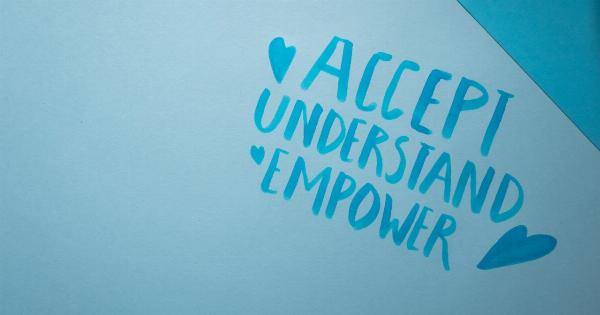Depression is a mental health disorder that can affect anyone, regardless of their gender. However, men often face unique challenges when it comes to identifying and managing their symptoms of depression.
This is because many men may feel ashamed or embarrassed about seeking help, or they may have a hard time recognizing their symptoms. In this article, we will explore how to identify depression in men and discuss the importance of seeking professional help.
1. A Persistent Sad or Empty Mood
One of the most common symptoms of depression is a persistent feeling of sadness, emptiness or hopelessness. These feelings may last for several weeks or longer and can have a significant impact on a person’s ability to enjoy life.
Men may also experience a sense of numbness or disconnection from their emotions, which can make it difficult to identify or describe how they are feeling.
2. Loss of Interest or Pleasure
Another common symptom of depression is a loss of interest or pleasure in activities that were once enjoyed.
Men may find themselves withdrawing from social activities, hobbies, or sports that they once enjoyed, or they may have a hard time finding joy in things that used to make them happy. This loss of interest can also affect their sex life and intimate relationships.
3. Changes in Appetite and Sleep
Depression can also have physical symptoms that affect a person’s appetite and sleep patterns. Men with depression may experience changes in appetite, such as overeating or not eating enough, leading to significant changes in weight.
They may also have difficulty falling asleep or staying asleep, leading to fatigue and irritability during the day.
4. Fatigue and Lack of Energy
Fatigue and lack of energy are also common symptoms of depression in men. Men may feel exhausted or have a hard time getting out of bed in the morning, even if they have had enough sleep.
They may also have a hard time concentrating at work or carrying out daily activities that require mental and physical energy. This lack of energy can affect their ability to function normally and may lead to feelings of frustration and guilt.
5. Increased Irritability and Anger
Depression in men can also manifest as increased irritability, anger or aggression. Men may experience sudden mood swings or have a shorter fuse than usual, leading to conflicts with those around them.
They may also have a hard time controlling their emotions, leading to outbursts or sudden bouts of anger, which may be difficult for others to understand or manage.
6. Physical Symptoms
Depression can also have physical symptoms that may be more common in men than in women.
These may include digestive problems, headaches, back pain or other physical aches and pains, which can be difficult to manage and can make depression symptoms worse. Men may also use alcohol or drugs as a way to cope with their symptoms, which can exacerbate their depression and lead to further physical and mental health problems.
7. Thoughts of Suicide or Self-Harm
One of the most serious symptoms of depression in men is thoughts of suicide or self-harm. Men may feel hopeless or overwhelmed by their feelings, leading them to consider ending their life or harming themselves as a way to cope.
If you or someone you know is experiencing these symptoms, it is essential to seek help from a mental health professional or crisis hotline immediately.
Getting Help for Depression in Men
Depression is a treatable illness, and seeking help is essential for recovery.
Men may face additional barriers to seeking help, such as stigma around mental health, feelings of shame or embarrassment, or a belief that seeking help is a sign of weakness. However, seeking help for depression is a sign of strength and can lead to improved mental health and quality of life.
There are various treatment options available for depression, including medication, therapy, or a combination of both.
It is important to work with a mental health professional to determine the best course of treatment for your specific symptoms and needs.
In addition to professional treatment, there are things that men can do to manage their symptoms of depression, such as:.
- Engaging in regular exercise and physical activity
- Eating a healthy, balanced diet
- Making time for activities that bring joy and purpose
- Connecting with others and building a strong support system
- Practicing relaxation techniques, such as mindfulness or meditation
Depression can be a challenging illness to manage, but with the right treatment and support, it is possible to achieve recovery and regain a sense of well-being.
If you or someone you know is experiencing symptoms of depression, do not hesitate to reach out for help. Remember, seeking help is a sign of strength, and you are not alone.






























